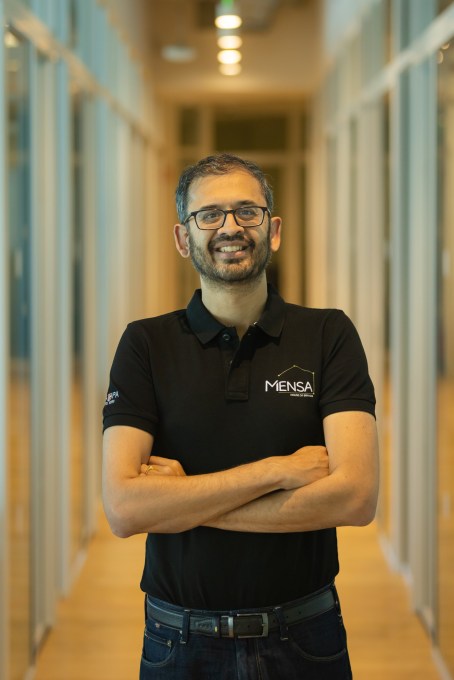Mensa Brands, an Indian startup that acquires direct-to-consumer brands and helps them scale within the home market and overseas, has become a unicorn just six months after launching its business.
Falcon Edge Capital led Mensa Brands’ $135 million Series B financing round that values the Indian startup at over $1 billion, the two said Tuesday.
Prosus Ventures, as well as all existing investors including Tiger Global, Norwest Venture Partners, and Accel also participated in the new round, pushing Mensa’s all-time raise to over $300 million in equity and debt.
Mensa Brands — founded by Ananth Narayanan, who previously served as the chief executive of fashion e-commerce giant Myntra that was eventually scooped by Flipkart — operates in the same space as Thrasio, the Boston-based startup widely credited with the success of this model.
But Narayanan believes that what Mensa is attempting to do is different. Mensa, which means constellation in Greek, is attempting to build a new age consumer brand similar to the Indian conglomerate Unilever or Bed Bath & Beyond, he said.
“Brands today are getting built very differently. The distribution has completely been democratized. I think you can do brand building very differently and interestingly with a lot more virality and personalization,” he said in an interview with TechCrunch.

Ananth Narayanan founded Mensa Brands. The startup has become the fastest Indian firm to become a unicorn. (Image credits: Mensa Brands)
Mensa Brands currently houses 12 brands, 80% of which are run by women, said Narayanan. The startup operates in three categories — apparel, beauty and personal care, and home. “In all of these categories, we are not trying to build a brand for India, but a brand for the globe,” he said, adding that 30% of the startup’s revenue already comes from overseas markets.
The startup buys a majority stake in each brand it partners with with plans to acquire fully acquire them in five years. All of these brands are profitable and their founding team joins Mensa Brands to work with the larger firm, said Narayanan. Mensa itself is also profitable, he said.
Mensa helps these brands organize and optimize their inventories across all popular marketplaces and their official websites. On the demand side, the startup performs “tech-led marketing,” and also optimizes the prices of products, he said. “We also do a lot of tech-led product developments such as identifying the products consumers are looking for, and help the brands launch new line of products,” he said.
Villain, a leading men’s fragrance and accessories brand that is part of Mensa now, grew by over 250% in October, the startup said. Another partner brand, Karagiri, a high-end designer sarees brand grew by 140% last month, it said. Narayanan said the vast majority of brands Mensa has acquired so far have grown by over 100%.
“We are excited to continue backing Ananth Narayanan as he executes a best-in-class playbook of brand aggregation and acceleration focused on Indian and global e-commerce brands,” said Navroz Udwadia, co-founder and partner at Falcon Edge Capital, in a statement.
“Mensa demonstrates a tangible uplift through a combination of product and pricing optimization, technology-led process improvement, distribution and marketing augmentation and fine-tuning the supply chain. These levers meaningfully accelerate the growth and margin trajectory of the brands and make them well-poised to become category leaders. We believe Mensa is well on track to cement its reputation as the partner of choice for well-performing e-commerce brands.”
Mensa plans to partner with as many as 30 additional brands in the next one year, said Narayanan.
Scores of entrepreneurs are attempting to find better e-commerce models across the globe. Many investors believe that Amazons and Flipkarts of the world have laid the railroads for digital commerce, but smarter and more profitable businesses can be built atop of them.
This is a developing story. More to follow…
via https://www.aiupnow.com
Manish Singh, Khareem Sudlow
